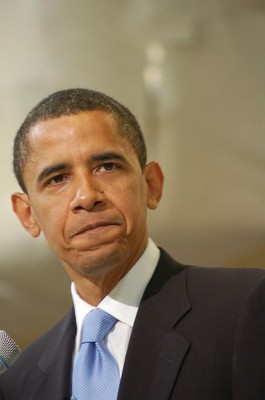President Barack Obama hit the education theme hard in his second State of the Union address last night and set the stage for a fight with Congressional Republicans over federal education spending as he prepares to release his budget for this year.
Education was one of the “pillars” of change that he said needs an infusion of money, along with innovation and infrastructure, despite the tough economy right now. In particular, he narrowed in on science, technology, engineering and math, known as the STEM fields, calling for the preparation of 100,000 new STEM teachers in the next decade.
Obama also seemed geared up to fight for another round of funding for Race to the Top, which he called the “most meaningful reform of our public schools in a generation.” At the Washington Post, Nick Anderson notes that this is a “debatable” characterization of the competition. Here’s what Russ Whitehurst at Brookings had to say: “It is far too soon to tally the results in terms of student achievement, but there is no doubt that it was the largest expansion of federal executive branch control in any generation.”
The speech included some tough love for teachers. Obama referenced the debates over tenure and merit pay: “We want to reward good teachers and stop making excuses for bad ones.” But he also called on “every young person listening tonight” to become a teacher “if you want to make a difference in the life of our nation.”
The president couched his argument in favor of greater investment in education by comparing the U.S. school system unfavorably to those of India and China, where students in Shanghai just trounced their international peers on the PISA test. The New York Times notes, however, that Obama may have overstated his case: “The president’s remarks suggested that the United States puts less of a priority on schooling. But that does not appear to be accurate at least in terms of compulsory education. China requires nine years of education and India just eight.”
Those countries are investing in improving their educational systems, however (see here and here), while across the U.S., state education budgets are being slashed in response to the fiscal crisis. Still, although some have suggested that education could be an area where Obama could find room for negotiations with Republicans — specifically, through the reauthorization of the Elementary and Secondary Education Act (ESEA) — others are skeptical. Despite the bipartisan seating arrangements last night, the newest members of the House have not seemed eager to embrace very many of Obama’s investment ideas, education included.




